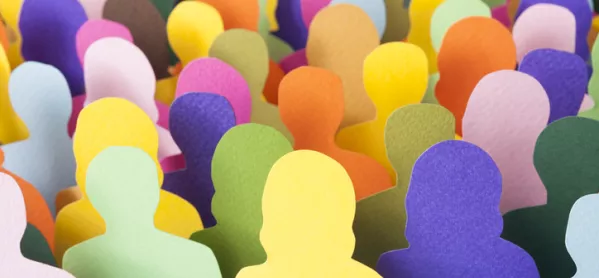- Home
- Leadership
- Strategy
- Creating a school community in an age of diversity
Creating a school community in an age of diversity

If we wish our school communities to be more than a loose agglomeration of individuals united only by their physical proximity on campus then we need to build cultures that communicate our commonality as humans and integrate our differences as individuals.
But is it really possible for everyone to share the same values in our diverse world or is a tolerant acceptance of our differences the best we can hope to achieve?
Our values are shaped by our culture, our heritage, our background, our upbringing and our lived experience of the world. As the Ancient Greek poet Pindar said: “Custom is king of all,” and, as a consequence, your values and mine are likely to be quite different - yet equally valid.
Different cultures and values in international schools
So, can staff and students in cosmopolitan or international settings be expected to share a set of values when our cultural assumptions and our backgrounds are so different?
Well, the school leadership literature and training emanating from the UK certainly expects educators to be guided by a moral purpose, which is seen as a unifying feature of vision building.
And yet morality is perhaps an even more problematic concept than our values. If the locus of creation of our values is within each of us as individuals, then the locus of creation of morality is in the hands of the system, the structure and the legislation of our overlords. This is not necessarily a bad thing.
In the UK, for example, the protected characteristics listed in Article 10 of the UK Equalities Act 2010 speak volumes about the desired values of modern Britain.
The Act provides a legal framework to protect the rights of individuals from unfair treatment and promotes a fair and more equal society.
However, many of the protected characteristics may not even be recognised, let alone legal, in countries where international schools operate.
As such, the adoption of any UK-specific legislation would be akin to the kind of universal morality once used to justify the “obligation” of European powers to colonise and civilise the rest of the world.
A place for all views
For these reasons, international schools have often steered clear of defining or adopting moral absolutes and have instead stuck to reliable, but fallible, rules of thumb in the form of school rules.
By implementing such rules that seek to preserve the safety of students on campus, school leaders avoid engaging head-on with the thorny issue of what is right and good, and instead focus on maximising academic outcomes.
After all, what could be more innocuous and apolitical than a universal focus on student progress?
However, in recent months, calls to decolonise the curriculum have shone a spotlight on the fact that assessing how well students have assimilated a specific curriculum is still loaded with moral and social choices - even if made unconsciously.
When the ability to unpack much of pre-20th century English literature requires knowledge of the Classics and the King James Bible, when an Anglo-centric version of history effectively ignores huge epochs simply because they happened “somewhere else”, and when modern foreign languages is still a byword for the Romance languages of Western Europe, it becomes clear that measuring student progress often assumes that some people, places and cultures are more worthy of study than others.
Consequently, international educators must begin to elicit incremental truths from within the communities that we have chosen to serve, rather than to impose moral absolutes from without.
By engagement with our diverse staff, student and parent body, we have the opportunity to define an ethical code for our communities that works in our contexts in our time.
A universal vision
But how do we define such a code of conduct? Well, we know that human beings are highly social and capable of reason.
Arguably everything humans have ever created has been borne of these two defining features of the human being, and everything we have ever destroyed is a result of our lack of reason and the limits of our sociability.
Indeed, as David Sloan Wilson, Mark Sloan and Michael Price reveal in their article ”Is there a universal morality?”, there is a growing consensus from research into our neurobiology that “our moral sense and the moral norms of any given culture were genetically and culturally selected for the benefits of cooperation they produced”.
Modern human beings, it would seem, are the end product of thousands of years of evolution that favoured our most reasonable and pro-social ancestors.
With this in mind, it is incumbent on international schools to unite their communities once again around commonly agreed, social and reasonable expectations of one another.
These codes of conduct will need to be continuously redefined, renegotiated and reiterated with every new generation of constituents. This is somewhat like painting the Forth Bridge - a never-ending task, no sooner completed than it needs redoing.
But if we wish for our communities to be more than agglomerations of individuals bucking against alien ideals and instead aggregations of members, bound by forces greater than geographical coincidence, then this must become our duty.
Michael Lambert is headmaster of Dubai College in the UAE
You need a Tes subscription to read this article
Subscribe now to read this article and get other subscriber-only content:
- Unlimited access to all Tes magazine content
- Exclusive subscriber-only stories
- Award-winning email newsletters
Already a subscriber? Log in
You need a subscription to read this article
Subscribe now to read this article and get other subscriber-only content, including:
- Unlimited access to all Tes magazine content
- Exclusive subscriber-only stories
- Award-winning email newsletters



